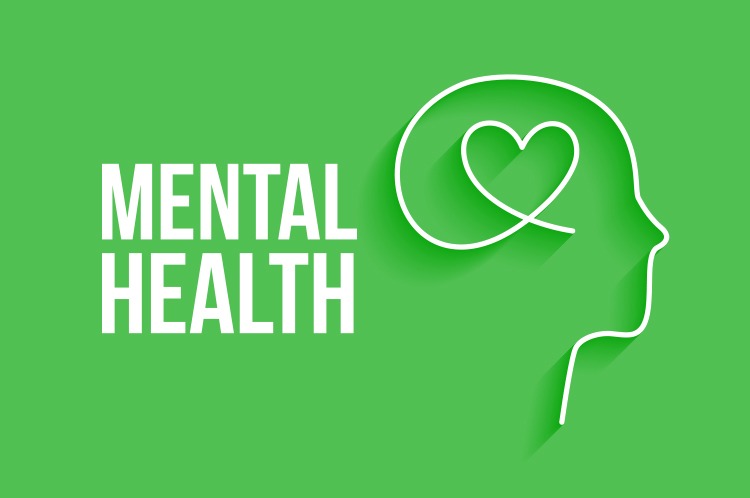Did you know?
As per the National Institute on Mental Illness,
- 1 in 5 US adults experience mental illness.
- Each year, 1 in 6 US youth between the ages of 6-17 experience mental disorders.
These statistics demonstrate the importance of prioritizing our mental health as much as our physical health. Here, we will understand mental health, what causes mental illness, symptoms, and how you can improve your mental health.
Why Maintaining Good Mental Health is Important?
The World Health Organization defines mental health as a state of mental well being that enables people to cope with the stresses of life, realize their abilities, learn and work well, and contribute to their community. A person with good mental health will:
- Deal with challenges effectively.
- Experience better and stronger relationships.
- Have higher self worth and self-esteem.
- Experience positive emotions of joy, contentment, and satisfaction.
- Have improved sleep quality.
These things are necessary to live a happy life.
What is Mental Illness?
Mental illness or disorder, on the other hand, lacks these qualities. According to the World Health Organization, “a mental disorder is characterized by a clinically significant disturbance in an individual’s cognition, emotional regulation, or behavior. It is usually associated with distress or impairment in important areas of functioning.” A person with poor mental health will:
- Find it difficult to make decisions.
- Find it difficult to concentrate on given tasks (simple or complicated).
- Experience mood swings.
- Self-criticize themselves.
- Have a higher probability of developing health-related diseases.
This can make even the simplest of days complicated and challenging. List of mental disorders include:
- Attention-Deficit/Hyperactivity Disorder (ADHD) – 8.7 million adults in the USA)
- Schizophrenia – (2.8 million adults in the United States)
- Bipolar Disorder – (around 7 million adults in the US)
- Insomnia – (Around 99 million US adults, however intensity may vary)
- Anxiety – (Over 40 million US adults)
- Depression (over 21 million adults in USA)
Why do People Suffer from Poor Mental Health?
(Source: Youtube)
The simple answer is that there is no one specific reason WHY; however, there are some common traits that can be seen in people suffering from poor mental health or mental illness.
This includes:
1. High-pressure job or long working hours
 (Source: freepik)
(Source: freepik)
In urban cities, the prevalence of poor or disturbed mental health due to work is increasing. It’s not only affecting the mental health of employees but also reducing the productivity of the organization.
- Multitasking
- Having greater responsibility than you can handle
- Toxic clients
- Conflict with coworkers
- Job insecurity
… are all reasons for work-related stress. You can check out a blog by Better Health to learn more about work-related stress. Organizations also organize employee wellness programs to counter work-related stress.
2. Financial problems
 (Source: https://stayhealthyandstayfit.com/)
(Source: https://stayhealthyandstayfit.com/)
People with financial difficulty and depression are more likely to be depressed after 18 months compared to people who are financially well. Here are a few reasons why financial difficulties can lead to poor mental health:
- Financial problems might affect your sleep quality.
- You might not have enough money to support your needs.
- Money problems are known to negatively affect relationships, leading to isolation and loneliness.
- You might feel ashamed of yourself and develop low self-esteem.
It is also worth noting that ‘not only can a poor financial condition lead to deteriorating mental health, but poor mental health can also result in financial losses.’
3. Chronic illness
 (Source: freepik)
(Source: freepik)
Research has shown that chronic diseases like cancer, HIV, heart problems, and epilepsy can cause depression. It is seen that one-third of people suffering from chronic or other serious illnesses have signs of depression. Here’s how chronic diseases can lead to poor mental health:
- The constant pain from some diseases can be extremely draining.
- Many restrictions are introduced into a person’s life due to their illness.
- Changes in their physical appearance may affect their mental health.
- Treatment and medication can cause financial stress.
- Chronic diseases can lead to mental fatigue.
The solution that most medical experts use is to treat the illness and poor mental health at the same time.
4. Social Isolation
 (Source: freepik)
(Source: freepik)
One of the most popular blogs for self-help, Ikigai, talks about the importance of socialization. It shares instances where every morning people from the neighborhood gather together for their morning tea. Socialization is known to improve mood and mental health. Social isolation, on the other hand, can cause:
- Greater risk of heart- disease
- Higher amount of work-related stress
- Poor physical health
- Changes in brain functionality
Social isolation can also lead to less physical activity and poor sleep quality.
4. Lack of Love or Toxic Relationship
 (Source: freepik)
(Source: freepik)
Emotionally, unsolved disagreements and emotional abuse can result in anxiety and depression, while continuous criticism, neglect, and a lack of compassion can cause feelings of worthlessness and low self-esteem. Psychologically, inconsistent affection or manipulating emotions can lead to mood swings and emotional instability, and prolonged stress from a toxic relationship can overwhelm the body’s stress response system, resulting in chronic anxiety and other stress-related problems.
Bad habits that can be caused by poor mental health:
- Drinking problems
- Smoking
- Overeating or undereating
- Procrastination
- Aggressive behavior
We assure you that the purpose of this blog is not to scare you or make you worry. Rather, it is to make you aware of the importance of mental health, and we promise that for the rest of this blog, we will be focusing only on the positives.
Habits That Can Boost Your Mental Health
Improving your mental wellbeing is not a short-term process; it is a long-term process that requires a lot of patience and willpower. And the good news is that there are numerous ways and practices you can use to improve your mental health. These are some of the best practices you can follow if you struggle with poor mental health:
1. Practice Positive Thinking
 (Source: freepik)
(Source: freepik)
Endurance training, aka. Aerobic exercises are necessary to keep our heart, lungs, and circulatory system healthy. A study by the American Heart Association recommends that an adult should engage in moderate-to-high-intensity endurance training for at least 150 minutes every week. Cycling, jogging, biking, swimming, cardio workout walking, and dancing all come under endurance training. Here are some of the advantages of endurance training:
- It enhances heart health and lowers the risk of heart disease.
- It helps boost metabolism and burn fats, both of which are beneficial for maintaining weight.
- It is known to strengthen our body’s muscles.
- It is known to reduce signs of stress and anxiety and improve our mood.
- It enhances our immune system, keeping us safe from diseases.
2. Maintain a Gratitude Journal
 (Source: freepik)
(Source: freepik)
A gratitude general includes writing about 2–3 things that you were grateful for on that day. It can be as simple as, ‘I am very grateful that I have a house, a room, and decent clothes to wear’. You can be thankful for anything or anyone that has contributed to making your day better. For instance, they could be your friends, parents, a supportive manager, a complete stranger, elevators, or even a football match. Knowing that there are people or things that help you and make you feel better can improve your mental health.
3. Talking to a Friend OR A Furry Friend
 (Source: freepik)
(Source: freepik)
Talking to your friend or your loved one seems like an obvious option, but poor mental health can lead to a person becoming unsocialized. The next best thing is to get a pet. Just spending 10 minutes with your pets can reduce stress and make you more relaxed. Their unconditional love is also known to reduce depression and the risk of heart disease. You can either spend time with your friend discussing your problems or spend time with your pet talking gibberish and scratching their back. The choice is yours, and honestly, both options are equally effective.
5. Working Out
 (Source: freepik)
(Source: freepik)
Mental health training requires physical training. Regular workouts are known to give a sense of fulfillment and improve your self-esteem. You can choose your workout method according to your lifestyle and what suits your body. You can choose between aerobic exercises, resistance exercises, or HIIT. Developing a workout routine also makes you more focused and disciplined, which can further improve your mental health.
5. Have an Upright Posture
 (Source: youtube)
(Source: youtube)
Most people are quite surprised by the fact that just having an upright posture can improve your mental health, but it is true. According to the Journal of Behavior Therapy and Experimental Psychiatry, having an upright posture can improve positivity and self-focus. Here are some exercises you can practice to improve your posture:
Bhujangasana
 (Source: freepik)
(Source: freepik)
Plank
 (Source: freepik)
(Source: freepik)
Bird Dog
(Source: Giphy)
Take Help From Experts
1. Talking to a Therapist
 (Source: freepik)
(Source: freepik)
Therapy is one of the most effective ways to improve your mental health, as there is an expert helping you through his experience and expertise. Types of therapy may include:
Based on the individual’s unique needs and preferences, each type of therapy has its own strengths.
2. Read Self-Help Books
 (Source: freepik)
(Source: freepik)
The world of self-help books is divided between people who have seen transformative results and people who think they are of no help whatsoever. If you are someone who loves to read, here are some of the best self-help books that can help you improve your mental health:
- The Courage To Be Disliked
- Ikigai
- Hello I Want To Die. Please Help Me
- Don’t Believe Everything You Think
- Get Out Of Your Head
For best results, try reading this book along with a pen and paper or a highlighter to note down important points and practices. Reading in a park, on the beach, or anywhere without your phones and laptops.
3. The Best Self-Help YouTube Channels
 (Source: freepik)
(Source: freepik)
If you are not a book person, you can check out these YouTube Channels:
All of these channels have more than 8 million subscribers, meaning they are extremely trusted by their viewers.
Final Thoughts
It is not only important to keep your mental health in check but also to look out for people around you. If you see a friend, colleague, or family member silently suffering, stretch a helping hand towards them. Poor mental health can be as deadly as chronic diseases; therefore, it is important that you put yourself above your work, take the time to prioritize self-care, and seek help if needed. Mental health awareness is the need of the hour. Remember, reaching out for support is a sign of strength, not weakness. You can check out StayFit StayHealthy to get tips and suggestions for a healthy life.

